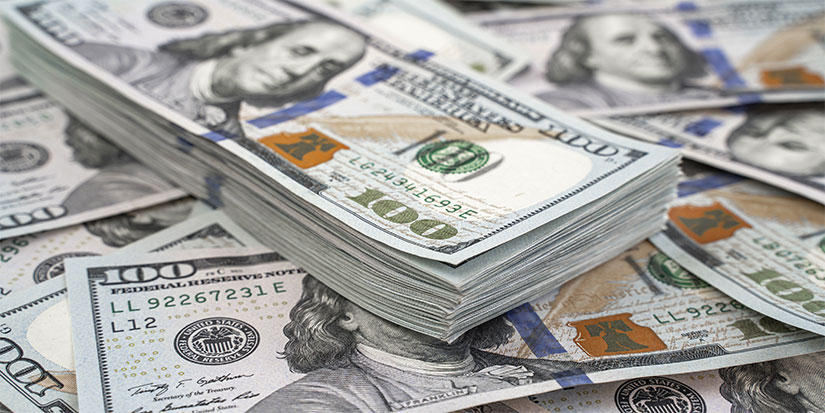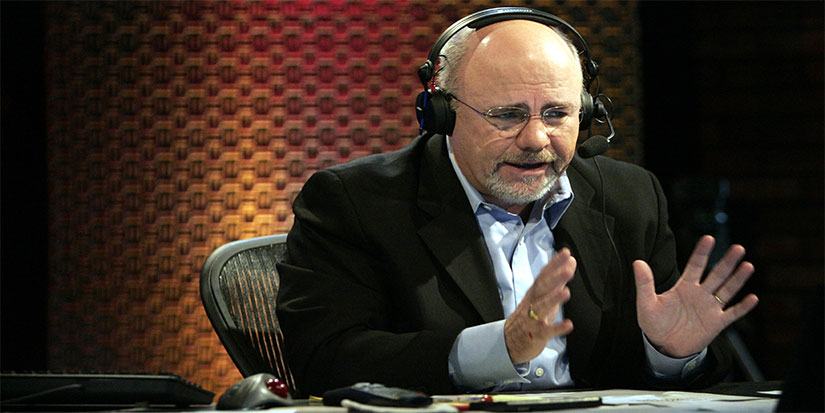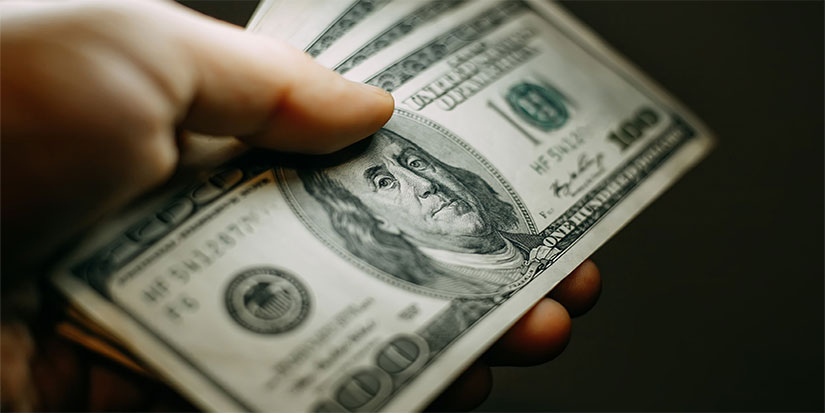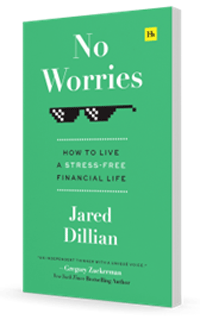
How Do You Feel About Money?
One of the common misconceptions about money is that you need a lot of it to be happy. But if your basic needs are met and you don’t have any debt or risk, you can live paycheck to paycheck and be perfectly content.

A Matter of Perspective
Things are pretty good right now. But I think most experienced market practitioners know that pain could be just around the corner.

Dave Ramsey and the One-Size-Fits-All Solution
Usually, when I rank on Dave Ramsey, I get back the following: “Well, he has helped a lot of people, hasn’t he?”

Life Is Too Short to Stay in Cheap Hotels
I was in Boston last week, and usually I stay in the Seaport—the high-rent district.

The Urge to Splurge
The purpose of money is enjoyment. If you do all the basic things right, then you can splurge on yourself sometimes.

It’s Not the Little Things; It’s the Big Things
There was an interview with Suze Orman recently in the style section of The Wall Street Journal. It was not a substantive interview regarding her philosophy about personal finance, but it was revealing nonetheless.
Here is an excerpt from the interview:
What do you like to splurge on?
I seriously splurge on private air. Unless we go to Europe or something because that’s ridiculous.
Where do you like to pinch pennies?
I refuse to eat out. I think that eating out on any level is one of the biggest wastes of money out there.
Wait a minute! She won’t spend $100 on dinner, but she’ll charter a $25,000 jet?
This is pretty much the opposite of my philosophy, where I say that it’s not the little things that matter; it’s the big things.
Ms. Orman would have to go out to eat 250 times to reach the cost of a private jet. Going out to eat occasionally is a good thing. The food is better, someone is waiting on you, and you get to enjoy some nice conversation that you wouldn’t have had if you were sitting at home in front of the TV. People have been going to restaurants for thousands of years.
Let’s face it: $100, for someone as successful as Ms. Orman, does not matter. But $25,000 does. And remember, we can give up big luxuries but not small luxuries. I could not give up going out to eat—it is a small luxury and entirely within my budget. But I have never flown on a private jet.
|
TWO WEEKS TO GO: |
Focus on What Matters
This is my complaint about the personal finance industry writ large—everyone is focused on peewee stuff that does not matter. Going out to dinner does not matter. Buying coffee does not matter. There are three things that matter: your mortgage, your car loan, and your student loans. If you get those three things right, you will be fine. If you get them wrong, you will be miserable. It’s as simple as that.
Now, Ms. Orman is only talking about the things that she likes to do—I don’t think she meant for this to be prescriptive, but we know from her other teachings that this is how she advises people on their finances.
I buy coffee from Dunkin’ Donuts in the morning. It costs $3.70. If I do that 225 times a year, that comes out to $900. That’s real money, for sure, but in the context of what you spend on a mortgage or car loan, it’s nothing. If you get a giant palace of a house, you will be spending $900 extra on your mortgage payment, easily.
The little stuff does not matter. The big stuff matters.
When does little stuff become big stuff? It depends on your income. I have some money, so I consider anything under $1,000 to be small stuff. I have to spend $350 servicing my car? Small stuff. Pool filter breaks and costs $600 to fix? Small stuff. Shopping spree in New York that costs $5,000? Big stuff, and you have to think twice about that.
 If you make less money, your threshold might be lower. But it should not get to the point where you’re agonizing about getting a soda out of the soda machine. If you’re thirsty, buy the soda because $2 just does not matter in the grand scheme of things.
If you make less money, your threshold might be lower. But it should not get to the point where you’re agonizing about getting a soda out of the soda machine. If you’re thirsty, buy the soda because $2 just does not matter in the grand scheme of things.
In my new book, No Worries: How to Live a Stress-Free Financial Life (which comes out in less than two weeks!), we go through the math on some of this stuff and the truths on human behavior and psychology.
Coffee is a small luxury. If you give up coffee for 40 years, you will be pretty miserable. If you give up a $20,000 vacation to Europe, you will not be miserable. You will go camping on a cheaper trip and be just as happy. It’s human psychology. We can give up big luxuries but not small ones.
The Jared Dillian Way
My way is the better way. I have had a pretty successful financial life. I’m not the richest guy in the world, but that’s not the point. I am the happiest guy in the world, at least when it comes to money, and that’s because I don’t think about money.
I have the right perspective. I worry about the big things but not the small things. I minimize my exposure to financial stress. I think about debt and risk, and not much else.
I will add that I would love to be in a position where I can fly private someday, and I’m happy that Ms. Orman has structured her life in such a way that she can do that. Congrats to her.
We should all fly in private jets someday. And, for sure, I could do it if I wanted, but it would be a stretch, and I don’t do things that are a stretch because it would stress me out. The goal is to live a stress-free financial life, and if you ever find yourself in a position where you can’t go out to dinner once a week, you’re doing it wrong.
You are going to want to order this book right now. You will get it in a week and a half.

Jared Dillian, MFA
|